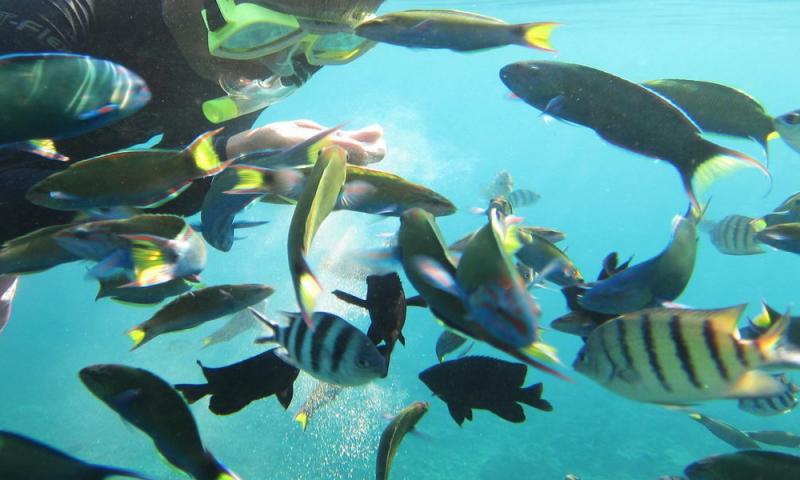LETTER | Is Blue Economy just another buzzword?
LETTER | The Blue Economy has emerged as a prominent concept in sustainable development discussions, particularly in Malaysia, where the marine environment plays a crucial economic role.
However, the effectiveness of this approach and its practical implementation in Malaysia are subjects of scrutiny, highlighting the challenges and gaps in current governance and policy frameworks.
Before the term “Blue Economy” was popularised, the world’s oceans were already facing severe degradation. Overfishing, pollution, and habitat destruction have significantly impacted marine ecosystems.
According to the United Nations, around 90 percent of global fish stocks are either fully exploited or overexploited, a trend mirrored in Malaysia.
The country generates over one million tonnes of plastic waste annually, much of which is in the ocean. The Ellen MacArthur Foundation warns that by 2050, the ocean could contain more plastic than fish by weight if current practices continue.
Additionally, coral reefs, which support a quarter of marine species, have suffered a significant loss, with approximately 14 percent of global coral reefs disappearing between 2009 and 2018 due to rising sea temperatures and pollution.
The Blue Economy aims to balance economic growth with environmental sustainability by focusing on industries like sustainable fishing, aquaculture, renewable marine energy, and marine tourism.
The Food and Agriculture Organization highlights the potential of sustainable aquaculture to meet seafood demand while easing pressure on wild fish stocks.
Marine renewable energy, such as offshore wind and tidal power, presents opportunities to reduce carbon emissions. However, without careful management, the expansion of these industries could exacerbate environmental problems, leading to increased pollution, habitat destruction, and excessive resource exploration solely for economic benefit.
Possible governance
In Malaysia, the possible governance to shape the Blue Economy can be found in several existing laws, policies and action plans such as the Fisheries Act 1985 (Act 317), Environmental Quality Act 1974 (Act 127), Maritime Enforcement Agency Act 2004 (Act 633), Exclusive Economic Zone Act 1984 (Act 311), Continental Shelf Act 1966 (Act 83), Merchant Shipping Ordinance 1952, National Coastal Zone Physical Plan (NCZPP) 2012, National Policy on Biological Diversity 2016-2025 and National Action Plan for Marine Litter (2021-2030).
However, this governance faces several notable gaps such as enforcement challenges with inconsistent application of laws (ie the Fisheries Act 1985 and the Environmental Quality Act 1974), which hinders effective management of marine resources.
Coordination issues also arise from overlapping jurisdictions among agencies like the Department of Fisheries and the Malaysian Maritime Enforcement Agency (MMEA), leading to confusion and inefficiencies in policy implementation.
Moreover, the fragmented implementation of existing policies, including the National Action Plan for Marine Litter and the National Coastal Zone Physical Plan, further exacerbates these challenges, underscoring the need for more integrated and effective approaches.
In addition, the absence of a comprehensive Blue Economy policy framework results in fragmented approaches across sectors, making it difficult to coordinate efforts and attract investment. Lastly, the limited resources and capacity affect the enforcement and management of Marine Protected Areas (MPAs).
For example, MPAs cover only about 5.56 percent of Malaysia’s marine territory, falling short of the 10 percent target set (by 2025) by the Convention on Biological Diversity. Furthermore, existing laws are often ill-equipped to address emerging challenges like deep-sea mining, marine plastic pollution, and climate change impacts.
Additional challenges for Malaysia’s Blue Economy include overfishing and illegal, unreported, and unregulated fishing. The World Wildlife Fund estimates that IUU fishing costs Southeast Asia, including Malaysia, between US$6-10 billion annually, threatening fish stocks and local livelihoods.
Marine pollution from coastal development and land-based activities significantly impacts marine ecosystems, with over 70 percent of Malaysia’s rivers reported as polluted, contributing to the contamination of coastal waters.
Climate change further exacerbates the situation, with the Intergovernmental Panel on Climate Change projecting a sea level rise of 0.5 to 1 meter by 2100, which poses severe risks to Malaysia’s coastal areas and marine industries.
Addressing challenges
To address these challenges, Malaysia should consider several policy recommendations. Developing a comprehensive Blue Economy policy framework that integrates all aspects of marine resource management is essential.
This policy should align with international best practices and the United Nations Sustainable Development Goals (SDGs), particularly SDG 14 (Life Below Water).
Strengthening inter-agency coordination by establishing a central oversight body can help streamline efforts and improve collaboration among federal, state, and local authorities. In addition, expanding and strengthening MPAs to meet the 10 percent target and ensuring effective management and enforcement are crucial.
The most vital suggestion is to strengthen the implementation of current legislation, such as the Fisheries Act 1985 and the Environmental Quality Act 1974.
Additionally, it is critical to tackle developing difficulties by making legislative revisions and incorporating additional regulations.
In conclusion, while the Blue Economy presents a promising approach to sustainable development, Malaysia must address significant governance challenges, policy gaps, and emerging threats to ensure its success.
By developing a comprehensive policy framework, improving coordination, and enhancing enforcement, Malaysia can leverage the Blue Economy to achieve both environmental and economic goals.
NUR ZULAIKHA YUSOF is a senior researcher, Center for Coastal and Marine Environment, Maritime Institute of Malaysia and IZYAN MUNIRAH MOHD ZAIDEEN is a senior lecturer, Faculty of Maritime Studies, Universiti Malaysia Terengganu.
The views expressed here are those of the author/contributor and do not necessarily represent the views of Malaysiakini.
RM12.50 / month
- Unlimited access to award-winning journalism
- Comment and share your opinions on all our articles
- Gift interesting stories to your friends
- Tax deductable
